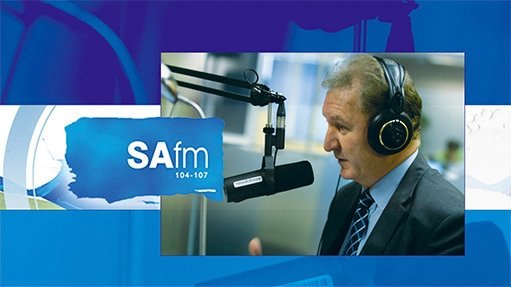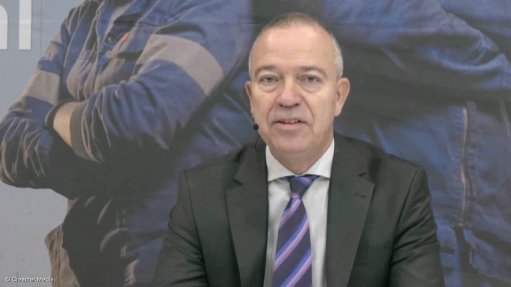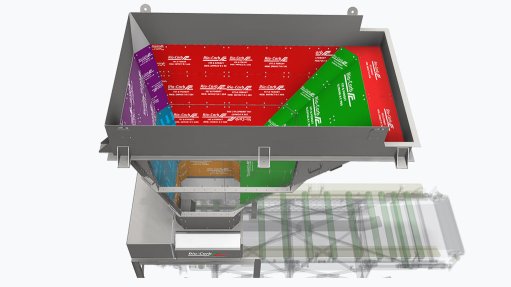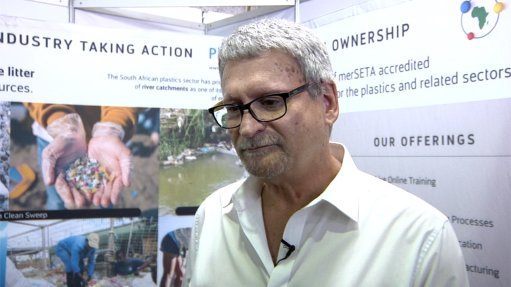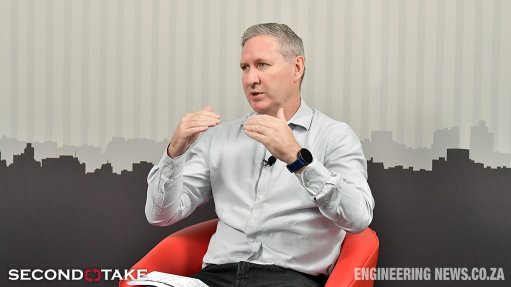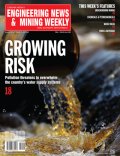NWU policy uncertainty index on cusp of positive territory
The North-West University Business School Policy Uncertainty Index (PUI) for the third quarter of 2024, although still in negative territory, eased considerably to 53.5 from 68.3 in the previous quarter (baseline 50).
On balance, the positive factors have substantially outweighed the negative ones over the last three months, says NWU Business School Professor Raymond Parsons, adding that after several years of an elevated trend, the PUI is now approaching positive territory.
Parsons attributes the improvement to a combination of reduced political uncertainty and the better business mood, driven by the formation of the Government of National Unity (GNU) and the reduction in Eskom loadshedding.
World economic growth is still seen by the International Monetary Fund (IMF) as steady at about 3.2% this year and 3.3% next year.
However, Parsons notes that there are divergences among the economic performances of various regions and countries, with both the US and China experiencing gradual slowdowns.
Inflation has also eased globally, prompting several central banks to begin an interest rate cutting cycle, notably the larger-than-expected 50 basis points cut by the influential US Federal Reserve in its first easing cycle since 2020.
Parsons warns that despite the broadly positive global economic outlook, there remain widespread underlying concerns about rising international protectionism, geopolitical tensions, domestic politics, debt levels and social polarisation, making the world economy more vulnerable, fragmented and uncertain.
Closer to home, the IMF sees growth in sub-Saharan Africa as gradually picking up, although weakly. Economic recovery in the region is expected to continue in 2025.
In South Africa, factors such as reduced political uncertainty, growth, inflation, interest rates, the rand, fuel prices, and confidence levels are all moving in the right direction to facilitate an economic recovery, Parsons points out.
Despite recent mixed high-frequency data, various surveys (including the PUI) reflect a general upbeat mood about future business conditions, he adds.
The advent of lower borrowing costs and the introduction of the ‘two-pot’ system for the withdrawal of pension funds on September 1 are also potentially supportive of economic activity in the country, Parsons avers.
On September 19, the Monetary Policy Committee started its interest rate cutting cycle with a reduction of 25 basis points in the repo rate.
However, Parsons warns that one weak link in South Africa’s growth prospects continues to be the ongoing decline in total gross fixed capital formation (GFCF), which has decreased for four consecutive quarters. Nevertheless, the latest Nedbank Capital Expenditure Project Listing Survey shows some pickup in fixed capital spending plans this year, and which are expected to materialise next year.
“The economy is not on ‘cruise control’ and there remain risks to the country’s growth prospects. For now, South Africa is still in the foothills of economic recovery. Further steps are still required to consolidate and accelerate the implementation of economic reforms, to move the PUI definitively into positive territory, and hence boost investor confidence,” Parsons cautions.
“Staying on the right economic track is now crucial. Key growth-friendly reforms, policies and projects, therefore, still need to be expedited by the GNU, in collaboration with the private sector where necessary, to build on the better business mood and secure a higher, inclusive and sustainable growth path for South Africa,” he emphasises.
Comments
Press Office
Announcements
What's On
Subscribe to improve your user experience...
Option 1 (equivalent of R125 a month):
Receive a weekly copy of Creamer Media's Engineering News & Mining Weekly magazine
(print copy for those in South Africa and e-magazine for those outside of South Africa)
Receive daily email newsletters
Access to full search results
Access archive of magazine back copies
Access to Projects in Progress
Access to ONE Research Report of your choice in PDF format
Option 2 (equivalent of R375 a month):
All benefits from Option 1
PLUS
Access to Creamer Media's Research Channel Africa for ALL Research Reports, in PDF format, on various industrial and mining sectors
including Electricity; Water; Energy Transition; Hydrogen; Roads, Rail and Ports; Coal; Gold; Platinum; Battery Metals; etc.
Already a subscriber?
Forgotten your password?
Receive weekly copy of Creamer Media's Engineering News & Mining Weekly magazine (print copy for those in South Africa and e-magazine for those outside of South Africa)
➕
Recieve daily email newsletters
➕
Access to full search results
➕
Access archive of magazine back copies
➕
Access to Projects in Progress
➕
Access to ONE Research Report of your choice in PDF format
RESEARCH CHANNEL AFRICA
R4500 (equivalent of R375 a month)
SUBSCRIBEAll benefits from Option 1
➕
Access to Creamer Media's Research Channel Africa for ALL Research Reports on various industrial and mining sectors, in PDF format, including on:
Electricity
➕
Water
➕
Energy Transition
➕
Hydrogen
➕
Roads, Rail and Ports
➕
Coal
➕
Gold
➕
Platinum
➕
Battery Metals
➕
etc.
Receive all benefits from Option 1 or Option 2 delivered to numerous people at your company
➕
Multiple User names and Passwords for simultaneous log-ins
➕
Intranet integration access to all in your organisation









